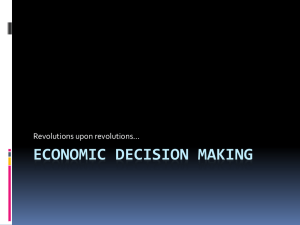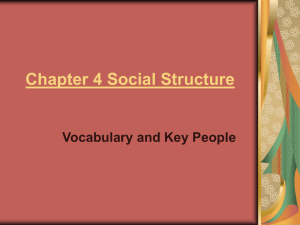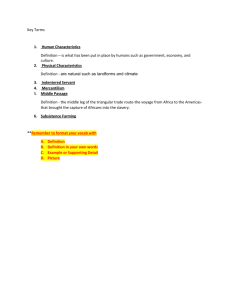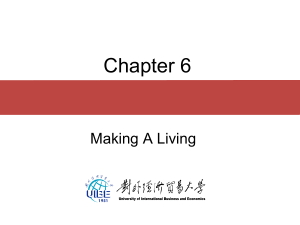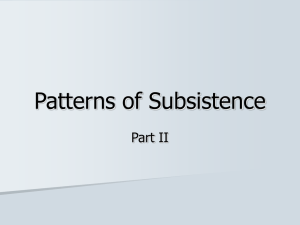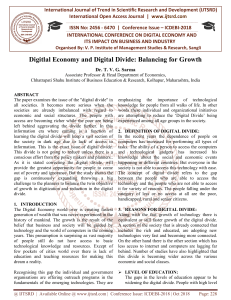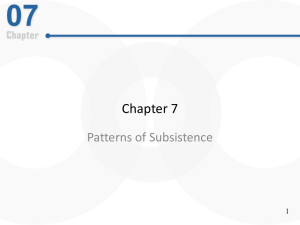Themes.doc
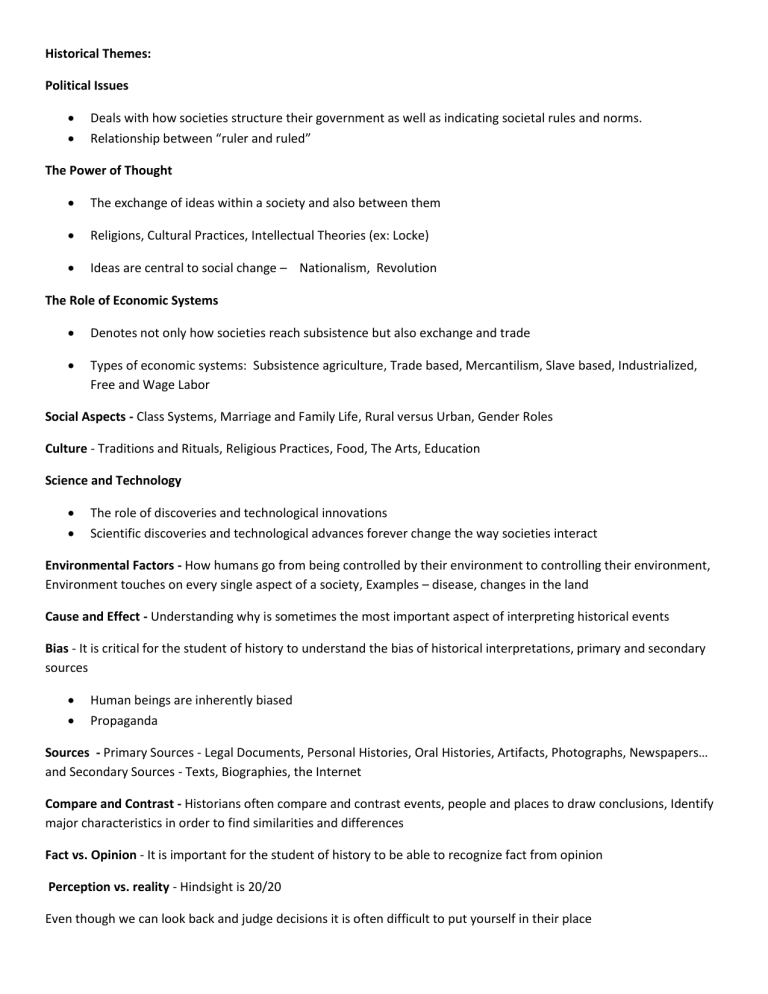
Historical Themes:
Political Issues
Deals with how societies structure their government as well as indicating societal rules and norms.
Relationship between “ruler and ruled”
The Power of Thought
The exchange of ideas within a society and also between them
Religions, Cultural Practices, Intellectual Theories (ex: Locke)
Ideas are central to social change – Nationalism, Revolution
The Role of Economic Systems
Denotes not only how societies reach subsistence but also exchange and trade
Types of economic systems: Subsistence agriculture, Trade based, Mercantilism, Slave based, Industrialized,
Free and Wage Labor
Social Aspects - Class Systems, Marriage and Family Life, Rural versus Urban, Gender Roles
Culture - Traditions and Rituals, Religious Practices, Food, The Arts, Education
Science and Technology
The role of discoveries and technological innovations
Scientific discoveries and technological advances forever change the way societies interact
Environmental Factors - How humans go from being controlled by their environment to controlling their environment,
Environment touches on every single aspect of a society, Examples – disease, changes in the land
Cause and Effect - Understanding why is sometimes the most important aspect of interpreting historical events
Bias - It is critical for the student of history to understand the bias of historical interpretations, primary and secondary sources
Human beings are inherently biased
Propaganda
Sources - Primary Sources - Legal Documents, Personal Histories, Oral Histories, Artifacts, Photographs, Newspapers… and Secondary Sources - Texts, Biographies, the Internet
Compare and Contrast - Historians often compare and contrast events, people and places to draw conclusions, Identify major characteristics in order to find similarities and differences
Fact vs. Opinion - It is important for the student of history to be able to recognize fact from opinion
Perception vs. reality - Hindsight is 20/20
Even though we can look back and judge decisions it is often difficult to put yourself in their place



